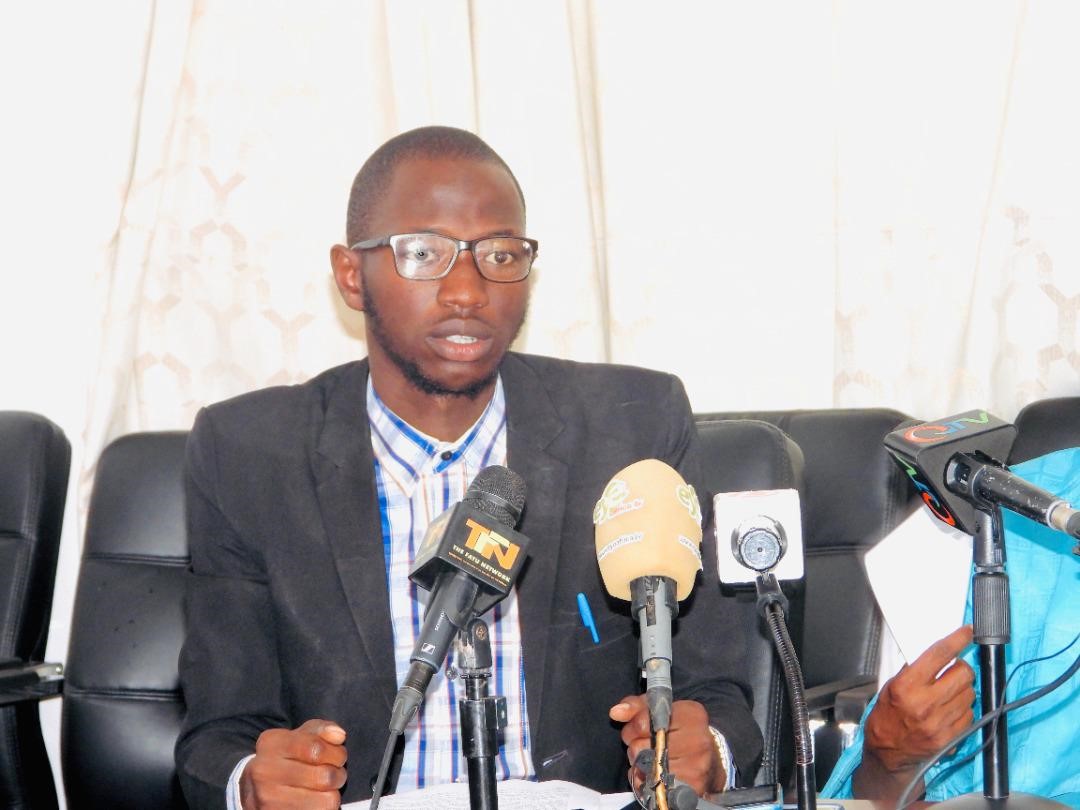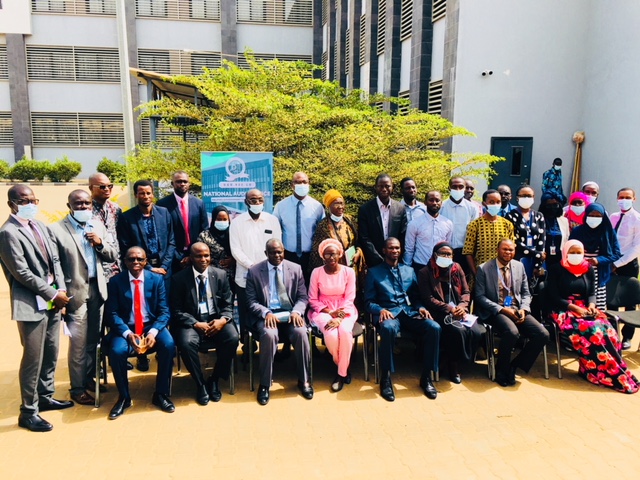By Binta Jaiteh
The Ministry of Health and Social Welfare is currently faced with the challenges of proper management of clinical waste generated from health facilities across the nation with an absolute requirement for drastic treatments of healthcare.
That waste, he said, is the total waste stream from a healthcare facility, which includes sharps, non-sharps, blood, body parts, chemicals, pharmaceuticals, medical devices, and radioactive materials
Speaking with The Voice, Mr. Lamin N.S Fofana, the program officer at the Environmental Health Unit under the Directorate of Public Health Services under the Ministry of Health, revealed that proper Management of Clinical Waste was a serious challenge that the Ministry of Health has faced, and as a result of that, the availability of a functional clinical waste management facility was prioritized by the Ministry and supported by the World.
He said the Ministry of Health Clinical Waste Treatment Center for the commissioning of the Ecosteryl 250 series was essential in waste management, that every day around the world, Health Care Providers treat the sick, saving their lives, but they also generate a large amount of potentially hazardous waste that could remain toxic for generations upon generations if left untreated.
“This waste absolutely required drastic treatments Healthcare waste (HCW) is the total waste stream from a healthcare facility (HCF) that includes sharps, non-sharps, blood, body parts, chemicals, pharmaceuticals, medical devices, and radioactive materials,” he said.
He added that poor management of this HCW exposes healthcare workers, waste handlers, and the community to infections, and toxic effects and can result in diseases or injury. And having a functional treatment unit in this process is crucial.
He outlined that the magnificent facility will enhance the proper management of clinical waste to protect the health care workers, patients, community, and the environment, in that regard, he said the Environmental Health Unit under the Directorate of Public Health Services, the Ministry of Health has been working to revolutionize the treatment of medical waste in all public health facilities and across all the region. This will be done, by providing an environmentally friendly, simple, and reliable solution thereby allowing infectious clinical waste to be treated and decontaminated in high security for safeguarding the environment.
However, he informed that the unit was able to acquire a project funded by World Bank called Health Care Waste Management Project, that in its implementation by unit, the unit has trained health care workers on Health care waste management, conducts quarterly monitoring of public health facilities on the management of the waste they generate, and Install containerize (inciner8) incinerator across the seven(7) health regions of the country, supply facilities with waste management equipment and PPEs.
He outlined that another landmark development has been achieved by the installation of a modern high technological waste treatment machine (AMB Ecosteryl 250 series) at the Ministry of Health CWTC.
He noted that the Ecosteryl 250 series is a non-incinerator waste treatment machine that reduces the volume of waste to the landfill by up to 80% and weight reduction up to 10% that the waste is crushed into an aspect unrecognizable adding which the Ecosteryl required only a small amount of energy, few staff, no water and they generate no toxic waste.
He said the unique process has been conceived to satisfy the agenda and objective of the environmental health unit by far the ministry of health and the Gambia government, adding that the waste treated with Ecosteryl is a Hazardous waste produced by medical activities, care unit of infectious diseases, herpetology, teas ology, isolation unit for surgery departments, obstetric or genealogy departments.
Mr. Fofana added that the treated waste could be integrated into the traditional waste treatment channels, that it can be landfilled, and Recycled or recovered, and that the resulting waste could also be used as fuel to generate electric power and for the production of cement.
However, he assured that dangerous waste becomes harmless and useful raw material and that proper management of clinical waste requires segregation, collection, temporal storage, safe and appropriate transportation, treatment, and disposal.
He further called for the need for healthcare workers and waste handlers to wear proper personal protective equipment regularly during the collection, storage, and transportation of clinical waste. The appropriate management of clinical waste requires multi-sectoral collaboration and partnership to enhance its management.





